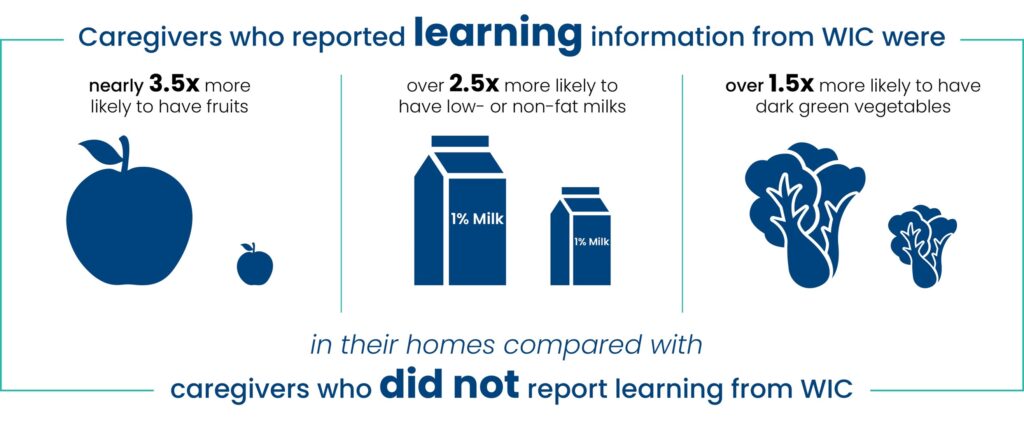New data show that Special Supplemental Nutrition Program for Women, Infants, and Children (WIC) nutrition education has a lasting impact on children’s nutrition.
The WIC Infant and Toddler Feeding Practices Study-2 asked families who had received WIC nutrition education if they were using what they had learned when their children were 9 years old—four years after the children graduated from WIC—and 83% said they were.

The study found that caregivers who reported learning about healthy food choices from WIC were nearly 3.5 times more likely to have fruits, over 2.5 times more likely to have low- or non-fat milks, over 1.5 times more likely to have dark green vegetables in their homes compared with caregivers who did not report learning from WIC.
“Proper nutrition is vital to children’s health,” said Christine Borger, PhD, a Westat Principal Research Associate and leader of the study. “This landmark study is instrumental for informing policymakers about how WIC impacts children’s nutrition, food options, and health outcomes from birth through age 9.”
Learn more about the study and the lasting impact of WIC from the WIC Infant and Toddler Feeding Practices Study-2 Year 9 Final Report.